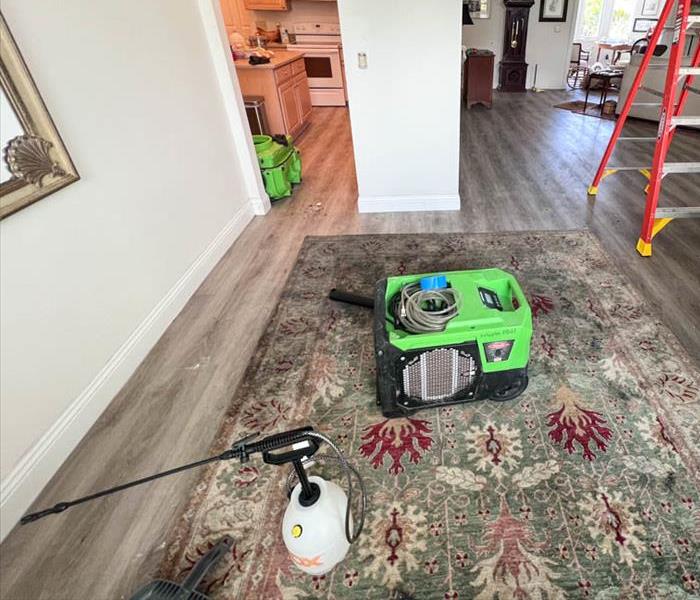How Water Can Damage Carpet, Hardwood, and Tile Flooring
10/9/2023 (Permalink)
Water damage can be a homeowner's nightmare, especially when it affects your flooring. Whether it's from a burst pipe, flooding, or a leaking roof, water can wreak havoc on different types of flooring materials. In this blog, we'll explore the essential steps to assess water-damaged flooring in your Jacksonville home, covering carpet, hardwood, tile, and more, so you can make informed decisions for a swift and effective recovery.
Safety First
Before assessing any water damage, ensure your safety. Turn off the electricity in affected areas to avoid electrical hazards. If the water is deep or from a contaminated source, avoid contact and wait for professionals to assess the damage.
Start with Carpet
Carpet is particularly vulnerable to water damage as it can absorb moisture and become a breeding ground for mold. Begin by assessing the extent of saturation. If the damage is extensive or from contaminated water sources, it's usually best to remove and replace the carpet.
Hardwood Flooring
Hardwood flooring can warp and buckle when exposed to water. Check for swelling, warping, and cupping of the wood. Depending on the severity, hardwood floors may require professional drying and refinishing or replacement.
Tile and Grout
Tile may seem impervious to water, but if moisture seeps beneath the tiles or damages the grout, it can lead to structural issues and mold growth. Inspect for loose tiles, cracks, or discolored grout. Address any issues promptly to prevent further damage.
Laminate and Vinyl
Laminate and vinyl flooring can quickly become waterlogged and warp. Inspect for signs of swelling, separation, or bubbling. Depending on the extent of damage, you may need to replace affected sections or the entire floor.
Concrete Flooring
Concrete is more resistant to water damage, but it's not impervious. Look for signs of efflorescence (white, powdery deposits), cracks, or discoloration. Address any issues promptly to prevent structural problems.
Professional Assessment
In many cases, it's advisable to seek professional assistance, especially when water damage is extensive or if you're unsure of the full extent of the damage. Professionals, such as SERVPRO® of Jacksonville South, can provide a thorough assessment and recommend the best course of action.
Assessing water-damaged flooring in your Jacksonville home is a critical first step toward recovery. Whether it's carpet, hardwood, tile, or other materials, early assessment and appropriate action can make a significant difference in minimizing damage and costs. Remember that SERVPRO® of Jacksonville South is here to help with professional water damage assessment and restoration when needed. Don't hesitate to reach out for expert guidance in restoring your home's flooring to its former glory.






 24/7 Emergency Service
24/7 Emergency Service